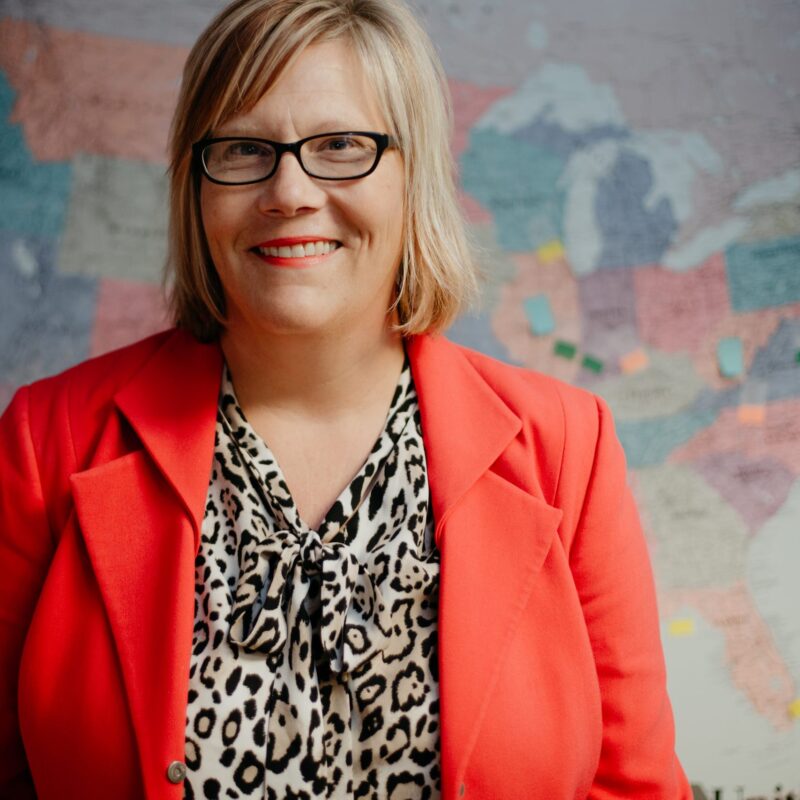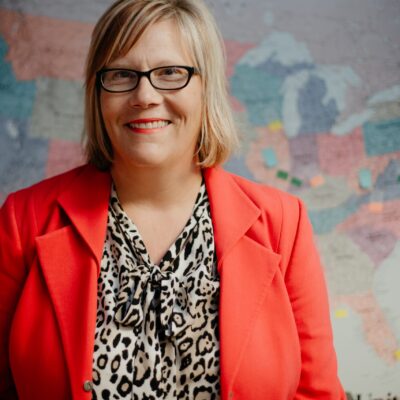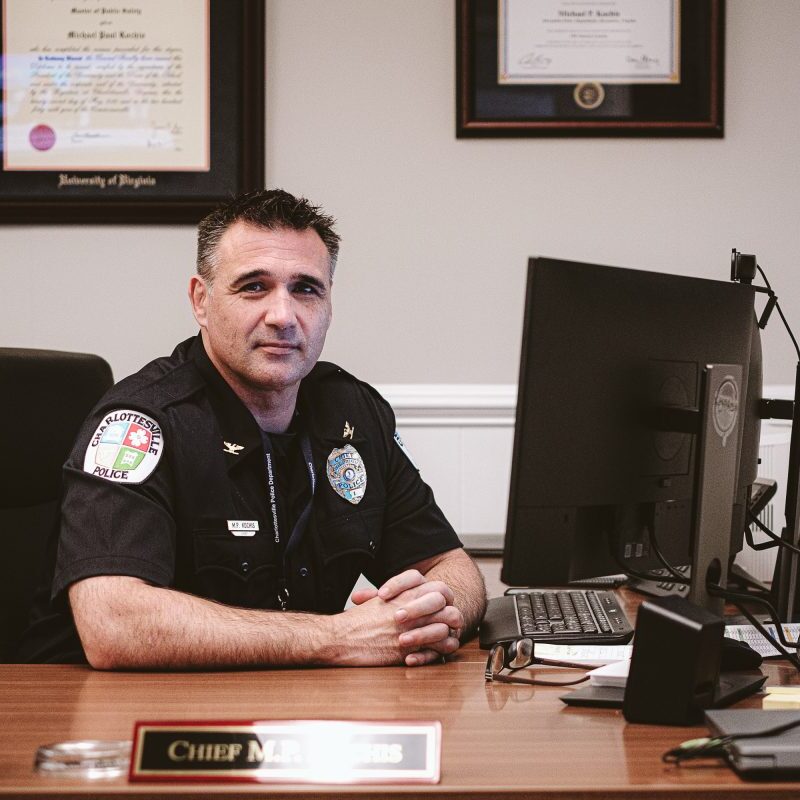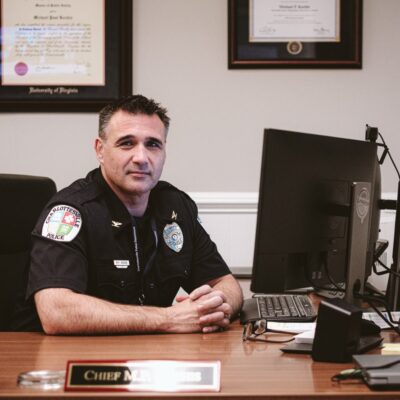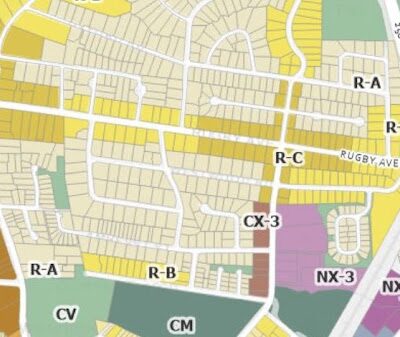|
Kerry Rock (right) served with the 173rd Airborne Brigade Combat Team in the Iraq War and works at Northrop Grumman. He started Morawk Events, an event planning business, with Ryan Drake (left), an Iraq War veteran and an intelligence anaylst who works at NGIC. (Photo by John Robinson) |
Memorial Day is a day to remember people who have died serving the country. It’s not a veterans’ holiday, but veterans do more of that kind of remembering than the rest of us, so it hits them differently.
“We live it every day. That’s my forget day,” said Kerry Rock, an Army veteran of the Iraq War. “Not to be sappy, but Memorial Day for us, if we’ve lost somebody close, it’s most every day. America gets one day and says, ‘Someone died for our freedom. Drop the flag to half mast and rock on.’”
The country has a short attention span these days, and with the Iraq War over and the war in Afghanistan drawing to a close, war is not much on people’s minds. I was supposed to meet Rock and four other veterans at his townhouse near Pen Park. One of the guys forgot about it, another had something come up, and a third was AWOL. So I met Rock and Ryan Drake– best friends, intelligence analysts, and partners in a new events planning business.
The idea was to talk about the culture clash veterans face when they come home. As the child of a Vietnam veteran, I feel that part of war acutely. That’s my experience.
Rock’s story is a typical army story. He was 17 years old in Santa Clarita, Cali. in 2000 and he signed up, against his parents’ wishes, in part because the staff sergeant who recruited him told him in four years he’d be in the best shape of his life with experience under his belt that would set him apart from his peers.
“The whole patriotism thing hadn’t happened yet. It was back in the ‘Be all you can be’ days,” he said.
After basic training and AIT, he became an intelligence analyst and was stationed in Italy. In 2003 he parachuted into northern Iraq as part of the 173rd Airborne Brigade Combat Team, the Sky Soldiers. He spent his time in Kirkuk analyzing the enemy’s use of IED’s, performing policing duties, and generally figuring out how to “adapt and overcome” against an “asymmetrical adversary.”
“All the Kurds came down from the Green Zone with AK-47s and tried to take their houses back, even though they hadn’t lived there in three generations,” Rock said. “We became policemen. We’d have to respond to like three or four of these a night, home invasions.”
Rock feels survivor’s remorse and he deals with PTSD. He has 60 percent disability from the Veterans Administration for that condition and for damage he sustained to his right leg and back during jumps and severe hearing loss in both ears.
At 29, he is youthful looking, wears the kind of mohawk you see on European soccer players, and has the sloped shoulders of someone used to carrying a an automatic rifle and a heavy pack. The Iraq War officially ended in December. The official count has 4,485 American soldiers died and over 33,000 wounded. The figures for Iraqis are sketchier and much larger. Wikileaks documents show that about 110,000 Iraqis died, 66,000 civilians. It wasn’t the kind of war you feel at home, though, and that’s why I had come to talk to Rock.
“With the wars ending, I mean, I think in a couple of years people are going to forget everything that happened,” he said. “And that kind of is a sad thing, that we lost a good amount of our friends over there. I don’t want to get political…people always ask me how I feel about the wars. I fought in them and I came home. My mom’s pretty happy about that–that last part mainly.”
Like many veterans, Rock feels distance from his civilian peers, but if there is any anger in him left about that, he hides it well. He has a gracious and easy manner, and seems comfortable talking about his experience.
“If you want to know, I’ll tell you. It used to be a little funky, but eventually I realized it felt good to get it out, instead of feeling like you’re the only one that’s dealt with this,” he said.
Rock says the challenge for him and other young veterans is “finding where we belong in this society.”
“There’s a lot of entitlement amongst the youth and the educated youth now and in this job market you kind of get looked down upon,” he said. “I don’t have a college degree and a lot of veterans don’t, but we’ll come out with a security clearance and four or five years of leadership experience and we’re looked down upon.”
Just after he got home in 2005, he was asked to talk about his experience to a class at his younger sister’s school and accepted the invitation.
“The first question some cocky little spikey-haired kid asked: How many people did you kill? And I just drilled down. How many sons did I take from their mothers? How many fathers did I kill? How many people didn’t go home cause of me?” he said. “You have to know what you’re asking.”
Rock is glad, he says, that young veterans have not faced what Vietnam veterans faced, and he feels, in almost every respect, that he has been treated fairly by the Army and by society. In fact, he says his staff sergeant was right. His friends at home are doing the same things they were doing when he left, only smoking a little more weed. Meanwhile, he owns his own house and has moved across the country.
“It’s a bad economy for everyone else, but it’s still a good economy for anything that has to do with war,” he said.
Still, the transition back to civilian life was not light or easy.
“Getting into the military, they’ll train you for a year to a year and a half to get you ready to do everything. But then getting out of it it was like a three-day class that was here’s how you do your resume and here’s how you do an interview,” Rock said.
Rock came to Charlottesville to work as an intelligence analyst for Northrup Grumman, and he has been back to Iraq and to Afghanistan in that capacity. He drives a black Cadillac sedan and a white Honda motorcycle with license plates that say “Morawk,” the name of the event business he started with Drake.
Drake was 19 when he signed up for the Army from his home near Milwaukee, Wisc. a month before the U.S. invaded Iraq. He spent two years in Korea before taking part in the surge as a member of a Stryker brigade combat team in Diyala Province. Stryker’s are the ubiquitous 8-wheeled armored personnel carriers you have likely seen on television. Drake’s job was to identify targets in what he calls a “personnel focused” war.
Drake is a contrast to Rock. He wears a long ponytail and his arms are heavily tattooed. He chain smokes and speaks in a quiet voice, searching for his words carefully and sometimes not finding them. If Rock looks the part of the Valley Boy, Drake is more like a jaded Milwaukee union guy, smoking on break. The war was hard on him. He was stop-lossed for 18 months.
“They don’t wear uniforms. You don’t know what’s going on. The guy that’s shaking your hand could be shooting at you the next day. There’s a paranoia aspect to it too,” Drake said.
Drake was given 40 percent disability by the VA for PTSD and damage to his legs and back. He felt he should have gotten more and processed a new claim.
“I still hear loud noises and it freaks me out, cause I’m used to either getting fucking rockets and mortars shot at me or gunfire. That was my experience,” Drake said.
Drake came to Charlottesville to work for NGIC and he has been back to Iraq twice since he left the Army. During his last visit, his room was destroyed by a rocket attack, a piece of shrapnel obliterating the pillow where his head had rested moments before he heard the first of three blasts.
Drake likes his job and says he does what he does to help other American soldiers survive. He’s not interested in the politics of war and feels we have made little progress in Iraq.
“It’s kind of pointless to try to find any real meaning to it, because I don’t think there is any,” he said. “It’s not World War II. It’s not kill or be killed. It’s kind of akin to people coming back from Vietnam.”
He’ll go back to Afghanistan soon. In the meantime, he’s busy working on his new house and helping Rock with Morawk Events, which recently held a fundraiser for the Sexual Assault Resource Agency of Charlottesville.
The business is the outgrowth of Rock’s organizing efforts, started initially as a way to bring veterans together. This Saturday, his running team, Zac Attack will take part in the second annual 4 The Wounded 5K to benefit the Virginia chapter of the Wounded Warrior Project, just as it took part in the Tough Mudder race in October and the Mud Warriors event in April. The team is named after Stanardsville’s Zac Cuddeback, who was killed in a terrorist attack in Germany and whose father served with Rock in Kirkuk.
Rock is part of a growing group of veterans who are seeking to define their role in society by taking the bull by the horns.
“Really most veterans I’ve met just want to talk to other veterans and throw stories back and forth. That’s therapy for me,” Rock said.
To sign up for the 4 The Wounded 5K, visit 4thewounded5k.com/register.
/warrior_culture.jpg)
